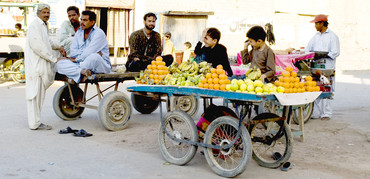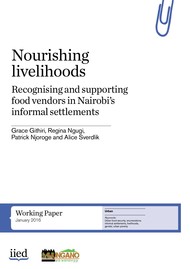Is urbanization contributing to higher food prices?

The recent spike in food prices has led to a renewal of interest in agricultural issues and in the long-term drivers of food prices. Urbanization has been mentioned as one possible cause of higher food prices. In this paper we examine some of the links through which urbanization is considered to be contributing to higher food prices and conclude that in most cases urbanization is being conflated with other long-term processes, such as economic growth, population growth and environmental degradation, which can more fruitfully be seen as related but separate processes. We discuss long- and-short term factors affecting food prices, and conclude that the one important way in which urbanization in poor countries may affect food prices, at least potentially, is that it increases the number of households who depend on commercial food supplies, rather than own production, as their main source and hence are likely to hoard food if they fear future price increases. The best policy option for managing this is larger food reserves. Attempts to curb urbanization, on the other hand, would be ill advised.
Cite this publication
Available at https://www.iied.org/10573iied






